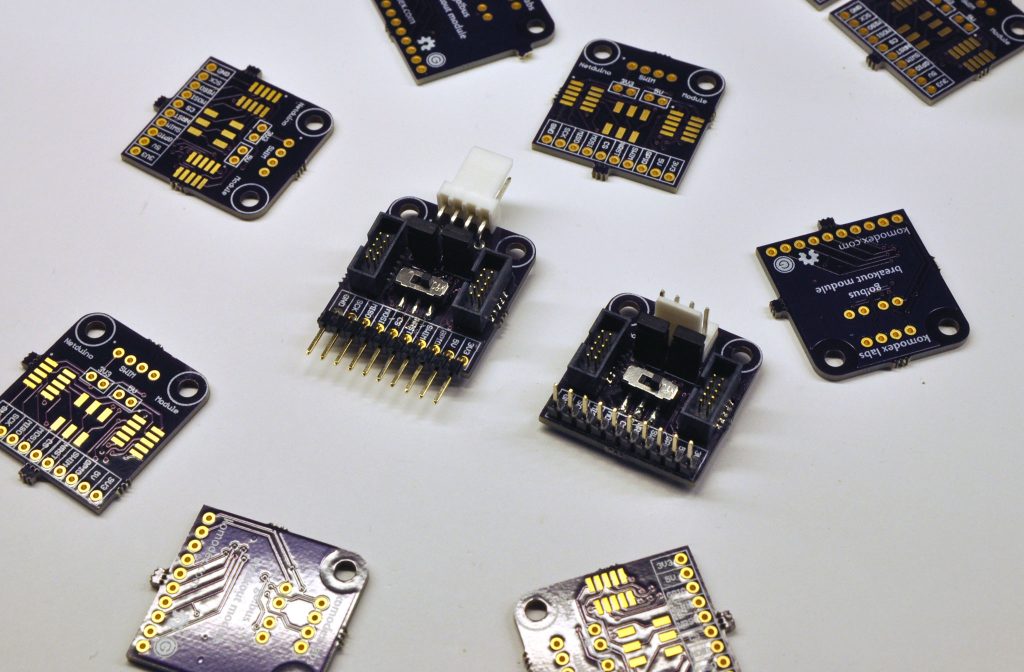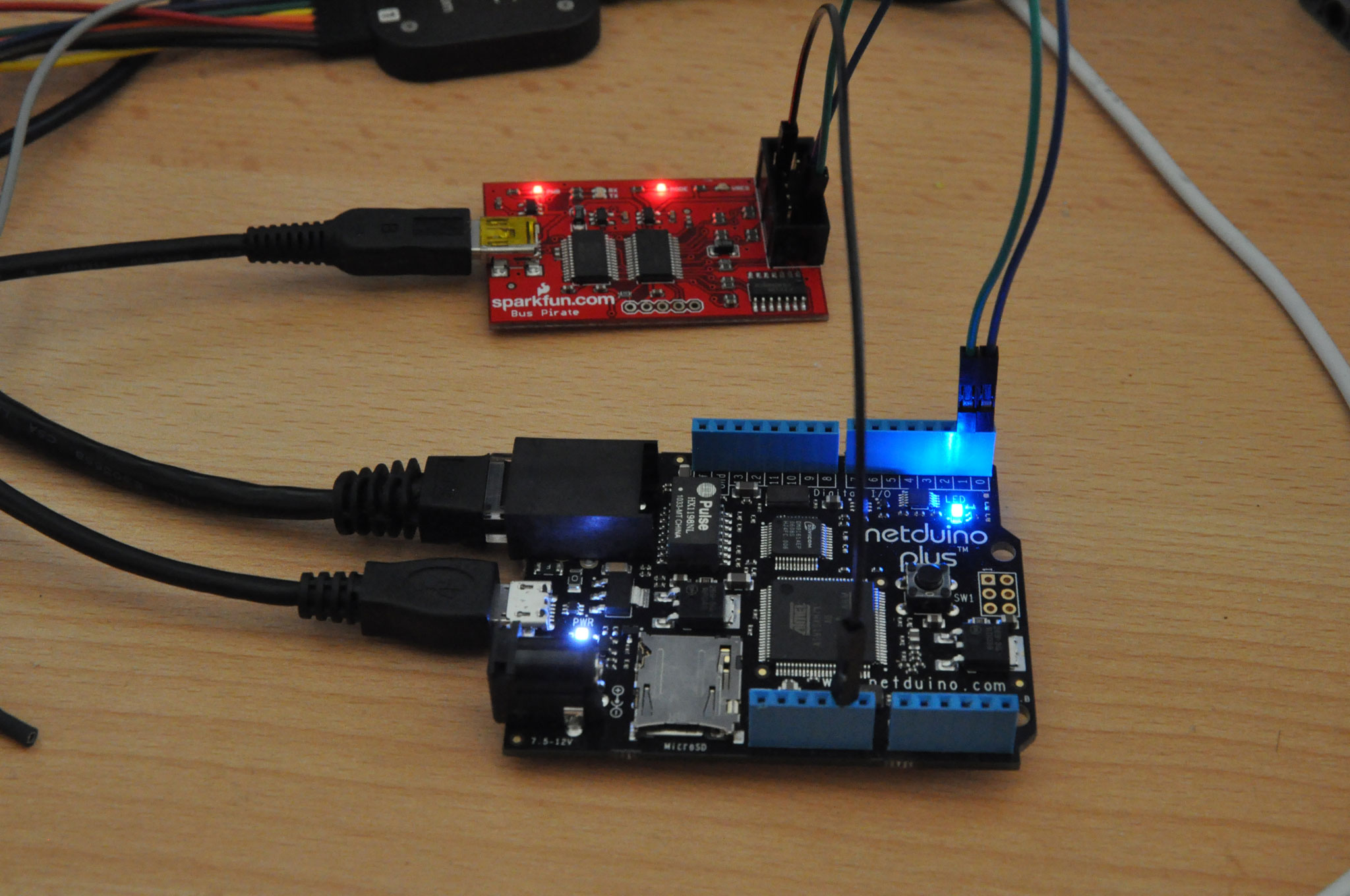Just a quick post to show a new go!bus module I developed recently. This is the go!bus Breakout Module:

This module is designed to help go!bus module developers. It is very similar to some Gadgeteer breakout boards such as this one from Sytech, but is specifically designed for use with go!bus modules and has a few extra features.
Continue reading GoBus Breakout Module
Tag: Netduino
A Developer's Introduction to GoBus
Update: Preliminary details about GoBus v1.5 have been released on the Netduino Forums. The following information still applies to the original GoBus implementation that currently exists on Netduino Go and its modules.
Hello, and welcome to the Komodex Blog!
This is the first of a series of blog posts I have planned that will cover a few different electronics subjects, most of which will be related to building modules for the Netduino Go.
Since this is a relatively new platform, I thought a good place to start would be an introduction to Netduino Go from a developer’s perspective, including an overview of how go!bus actually works. The information in this post has been gathered from both my own development efforts and the Netduino Community (including the Netduino Forums and Wiki).
Continue reading A Developer's Introduction to GoBus
MicroTweet for the .NET Micro Framework
Update April 14, 2011: This project is now on CodePlex: MicroTweet – Twitter OAuth API Library for the .NET Micro Framework
I recently purchased a Netduino Plus, a small (but powerful) board based on an Atmel 32-bit microprocessor with the same form factor as an Arduino. The Netduino can run programs written in C# for the .NET Micro Framework and the “Plus” version adds a 10/100 Mbps Ethernet port, giving you a very powerful network-capable device for about $59 USD.
What can you do with it? Quite a lot, actually, as seen in the Project Showcase section of the Netduino Forums. You have access to network sockets via System.Net.Sockets, you can perform HTTP requests via System.Http, and there are even a few lightweight web server implementations available.
The only thing I couldn’t find is a library for Twitter. Looking around, I found a project called Tweet Library for Arduino, which sends tweets through an external website, presumably to avoid implementing OAuth on the Arduino. For this project, I decided to make the Netduino communicate with Twitter’s API directly, which means no external websites or proxies are necessary.
Continue reading MicroTweet for the .NET Micro Framework
